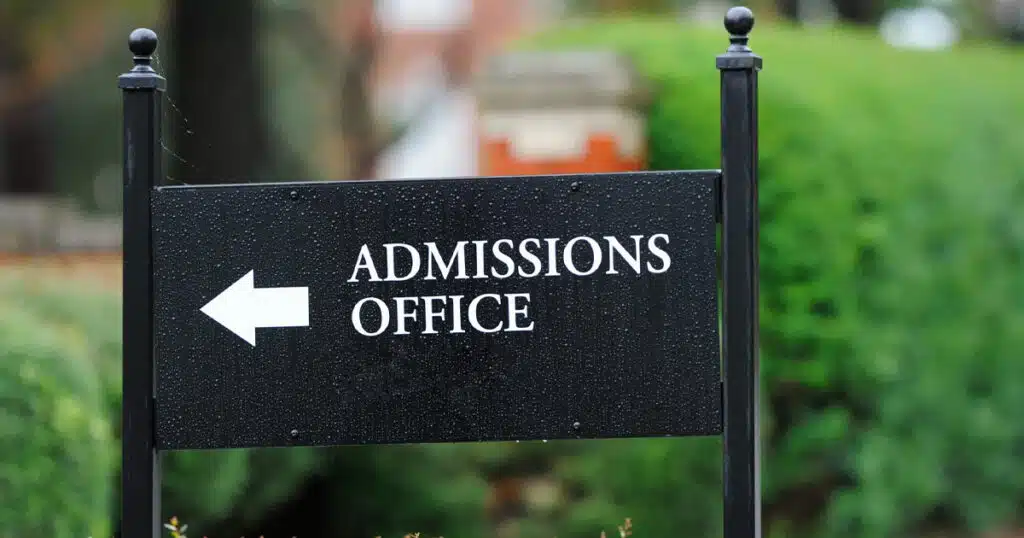
“Diversity” Equals Quotas In College Admissions
Whatever happened to the most qualified?
From the time we were kids picking teams, the best player was chosen first. As we got older and went to work, promotions in the large majority of incidence, are given to those that are performing the best at their profession. Yes, in the workplace there are discrepancies. At times friendship, nepotism and other issues may come into play. These are things that work themselves out over time within an organization, because for any company to thrive the best people need to be in the positions they excel at.
So why are colleges still hiding behind the word “Diversity” when it comes to admissions?
On Monday, this very question was brought to the Supreme Court.
Ed Blum is the founder of the group Student for Fair Admissions (SFFA). There goal is to bring attention to the fact that “Diversity” in the case of college admissions applies to race, and by seeking this “Diversity” it simultaneously discriminates against others.
There were two cases brought before the court. One against Harvard and the other against the University of North Carolina (UNC). Both cases were challenging the schools affirmative action admission policies.
The questioning by the justices was succinct, and the lawyers and solicitor general’s representing both schools struggled to answer in a concise manner. They spoke, as is typical, in broad, and vague terms.
When Justice Clarence Thomas questioned Ryan Park, North Carolina’s solicitor general and UNC’s defender what diversity is, Park couldn’t answer clearly. Stating that the university uses a “broadly diverse set of criteria that extends to all different backgrounds and perspectives and not solely limited to race.”
Justice Brett Kavanaugh then asked Park if UNC considers an applicant’s religion under his diversity definition? To which Park admitted, that, unlike the race question, there is no box to check for religion on the schools application.
Justice Neil Gorsuch then asked Park: “How do you distinguish between what this court has said is impermissible, a quota, with what you argue should be permissible going forward, which is diversity. How can you do diversity without taking account of numbers?”
Park wasn’t able to provide a good answer. Instead he fell back on the vague retort that UNC achieves “Diversity” by looking at an individual applicant through its holistic process, which includes race among other factors.
Gorsuch countered Park’s response saying that “Diversity “had been used “as a subterfuge for racial quotas”
Elizabeth Prelogar, the U.S. Solicitor General then reminded the court that: “A blanket ban on race-conscious admissions would cause racial diversity to plummet at many of our nation’s leading educational institutions.
Seth Waxman, the lawyer representing Harvard also admitted that the schools application does not consider religion. Like Park, Waxman also resorted to the schools holistic approach of screening applicants.
Justice Thomas questioned Park on what he believed were the benefits of “Diversity.” However, Park again could only state:
“Diversity of all kinds leads to ‘a deeper and richer learning environment,’ leads to more creative thinking and exchange of ideas, and, critically, reduced bias between people of different backgrounds and not solely for racial backgrounds.”
Justice Thomas, agitated by Park’s response answered:
“I didn’t go to racially diverse schools, but there were educational benefits.” He then reminded him that parents don’t send their kids “To have fun or feel good or, anything like that. They send them there to learn physics, or chemistry, or whatever they’re studying.”
In 2003, the court case of Grutter vs Bollinger Justice Sandra Day O’ Conner stated that affirmative action was permissible, but it is not meant to last forever. She stated then:
“We expect that 25 years from now, the use of racial preferences will no longer be necessary to further the interest in student body diversity.”
The truth is that these schools simply give lip service to the term “Diversity.” Today, almost 20 years later skin color is nothing more than the most visible sign of a difference between people. Yet, that does not prove “Diversity.” Anyone can be like minded regardless of race. So to claim that you are seeking to be diverse on skin color alone is a ridiculous sentiment.
In August of this year, The Harvard Crimson released the results of a survey that it conducted. Approximately five hundred professors were questioned on a variety of subjects.
According to the survey, only 16 percent considered their views as moderate and only 1.5 percent identified as conservative.
Not surprisingly, only 25 percent of those surveyed supported hiring more conservative professors. 31 percent openly opposed hiring conservatives, while 44 percent neither supported it, nor opposed it.
So “Diversity” at Harvard means having less than 2 percent of their professors identifying as conservatives.
Affirmative Action is nothing more than a race quota that discriminates against others.
Universities need to seek Intellectual and ideological “Diversity” if they want to truly create a robust learning atmosphere.



